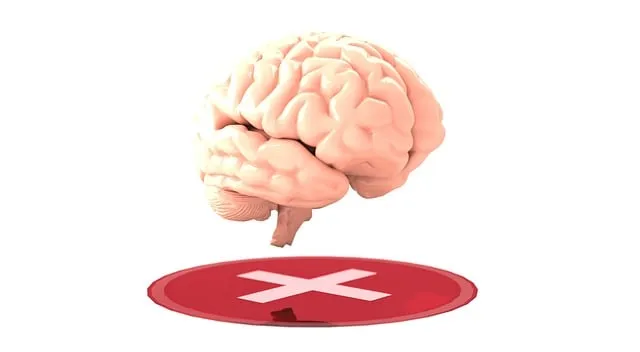Implementing Community Outreach at Lafayette Kaiser Permanente Mental Health Access Center
The Lafayette Kaiser Permanente Mental Health Access Center is a vital resource offering comprehensi…….
In an era where mental health awareness is gaining critical mass, the Lafayette Kaiser Permanente (KPC) Mental Health Access Center stands as a beacon of hope and specialized care. This center represents a significant advancement in the healthcare system’s approach to addressing the growing need for accessible and comprehensive mental health services. In this article, we embark on a journey through the multifaceted aspects of the Lafayette KPC Mental Health Access Center, exploring its impact, operations, and potential to transform lives worldwide.
Definition and Core Components:
The Lafayette Kaiser Permanente Mental Health Access Center is a specialized healthcare facility designed to provide integrated mental health services within the well-established Kaiser Permanente healthcare system. It offers a comprehensive range of programs, including outpatient therapy, psychiatric care, crisis intervention, and community outreach. The center’s core components include:
Historical Context and Significance:
The concept of dedicated mental health access centers has evolved over the past few decades, driven by increasing recognition of mental health as a vital aspect of overall wellness. The Lafayette KPC Mental Health Access Center builds upon Kaiser Permanente’s long-standing commitment to providing high-quality, affordable healthcare. By integrating mental health services into its primary care model, Kaiser Permanente aims to destigmatize mental illness and ensure equitable access to care for all members.
Fitting into the Broader Landscape:
This center is strategically positioned within a network of healthcare providers, collaborating with local communities, schools, and other organizations to address the complex needs of individuals struggling with mental health issues. Its presence helps bridge the gap between primary care and specialized psychiatric services, ensuring continuity of care for patients across various settings.
International Influence:
The Lafayette KPC Mental Health Access Center’s model has garnered international attention, inspiring similar initiatives in various countries. The successful integration of mental health services within a primary care setting has been replicated in several nations, particularly in regions with limited healthcare resources. These adaptations often involve local cultural sensitivity and collaboration with community leaders to ensure the effectiveness and acceptability of the program.
Global Trends Shaping its Trajectory:
Regional Differences and Impact:
The implementation of similar models has varied outcomes across regions:
Market Dynamics:
The Lafayette KPC Mental Health Access Center operates within a dynamic healthcare market characterized by rising mental health service demands and evolving reimbursement models. Key factors influencing its economic landscape include:
Investment Patterns:
Economic Impact on Systems:
The economic impact of the Lafayette KPC Mental Health Access Center extends beyond its walls:
Digital Transformation:
Technology plays a pivotal role in shaping the future of mental health care, and the Lafayette KPC Mental Health Access Center is at the forefront of this digital revolution. Key technological advancements include:
Impact on Service Delivery:
Future Potential:
The center aims to leverage emerging technologies like artificial intelligence (AI) and virtual reality (VR) to enhance therapy sessions and develop innovative treatment modalities. AI-driven chatbots can provide initial assessments and support, while VR can offer immersive therapeutic experiences, particularly for phobia treatments.
Key Policies and Regulations:
The Lafayette KPC Mental Health Access Center operates within a stringent regulatory framework designed to protect patient rights and ensure ethical practices. Key policies include:
Influence on Development:
Main Challenges Faced:
Criticisms and Proposed Solutions:
Case Study 1: Urban Youth Outreach Program
In a bustling metropolitan area, the Lafayette KPC Mental Health Access Center launched an urban youth outreach initiative targeting adolescents facing social and emotional challenges. By partnering with local schools and community centers, they offered group therapy sessions focused on stress management, resilience building, and peer support. The program’s success was evident in the reduced rates of school absenteeism and improved academic performance among participants. This approach demonstrated the center’s ability to engage hard-to-reach populations and foster a sense of community.
Case Study 2: Rural Telemedicine Expansion
In a rural region with limited mental health resources, the center expanded its telemedicine services, enabling individuals in remote areas to access specialized care. Through partnerships with local healthcare providers, they offered remote therapy sessions and medication management. This initiative led to increased access to psychiatric care, improved patient retention rates, and positive feedback from patients regarding convenience and reduced travel burdens.
Lessons Learned:
Potential Growth Areas:
Emerging Trends to Watch:
Strategic Considerations:
The Lafayette Kaiser Permanente Mental Health Access Center stands as a beacon of hope and progress in the field of mental healthcare. Through its comprehensive approach, innovative technologies, and community-focused initiatives, it is transforming lives and shaping the future of mental health services. As global awareness and demand for accessible care continue to grow, this center’s model serves as a powerful template for other organizations seeking to make a meaningful impact on mental health literacy and treatment worldwide.
Q: How does the Lafayette KPC Mental Health Access Center ensure patient confidentiality?
A: The center adheres to strict HIPAA guidelines, employing secure data storage systems and encryption protocols to protect patient information. Staff are trained in confidentiality practices, and patients sign informed consent forms outlining their rights.
Q: Are mental health services covered by insurance?
A: Yes, the Affordable Care Act (ACA) requires most insurance plans to cover mental health services at the same level as physical healthcare, ensuring equitable access for insured individuals.
Q: Can I access these services if I don’t have Kaiser Permanente insurance?
A: While the center’s primary focus is on members of the Kaiser Permanente healthcare system, it may offer certain services or programs to non-members through partnerships or community outreach initiatives. Contacting the center directly for inquiries is advised.
Q: How can I refer a friend or family member to the mental health access center?
A: You can reach out to the center directly via their website or phone number, providing relevant information about the individual and your reasons for referral. They will guide you through the process and answer any questions you may have.
Q: Are there any costs associated with seeing a therapist at the mental health access center?
A: Insurance coverage varies, but generally, members of Kaiser Permanente can access these services without significant out-of-pocket expenses, depending on their plan. Non-members or individuals with specific insurance plans may have different experiences, so it’s best to inquire for accurate information.

The Lafayette Kaiser Permanente Mental Health Access Center is a vital resource offering comprehensi…….

The Lafayette Kaiser Permanente mental health access center is a leading force in improving communit…….